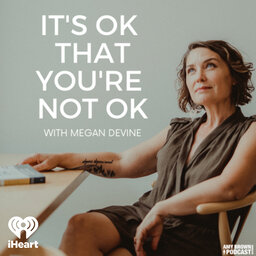Cruelty on Steroids: How We Talk to Each Other, with Jameela Jamil
We fight hard for the things we believe in. But HOW we fight for those things causes more damage than we realize.
Jameela Jamil is a lightning rod for criticism, but it’s not just how people treat her that she’s concerned about.
“The most punk thing I can do is move towards love and unity.” - Jameela Jamil
In this episode we cover:
- Our odd habit of dehumanizing each other in the name of “progress”
- Do we believe, fundamentally, that human beings are allowed to change and grow?
- What kids learn when we attack each other on social media (or in the news)
- Why vengeance - aka: cancel culture - isn’t going to help us get the world we want
- Why you should try to make more mistakes
Looking for a creative exploration of grief? Check out the best selling Writing Your Grief course here.
“Most of our behavior on all political sides is coming from trauma and fear - it's not all just ignorance. We have to listen for that pain if we’re going to be effective.” - Jameela Jamil
Related episodes:
Book Bans, Grief, and Love: What Do These Have to Do With Social Movements? with Malkia Devich-Cyril
Why Do We Celebrate Trauma (aka: Resilience)? with Dr. Gabor Maté
Follow our show on Instagram, Facebook, Twitter, and TikTok @refugeingrief and @itsokpod on TikTok. Visit refugeingrief.com for resources & courses
About our guest:
Jameela Jamil is an actress, advocate, and podcast host. You’ve seen her in The Good Place, She-Hulk: Attorney at Law, and Legendary, and all over social media commenting on the odd things we do to ourselves and each other. Follow her on IG @jameelajamil, and listen to her podcast I Weigh.
About Megan:
Psychotherapist Megan Devine is one of today’s leading experts on grief, from life-altering losses to the everyday grief that we don’t call grief. Get the best-selling book on grief in over a decade, It’s Ok that You’re Not OK, wherever you get books. Find Megan @refugeingrief
Additional resources:
Want to talk with Megan directly? Join our patreon community for live monthly Q&A grief clinics: your questions, answered. Want to speak to her privately? Apply for a 1:1 grief consultation here.
Check out Megan’s best-selling books - It’s OK That You're Not OK and How to Carry What Can’t Be Fixed
Books and resources may contain affiliate links.
 It’s OK That You’re Not OK with Megan Devine
It’s OK That You’re Not OK with Megan Devine


